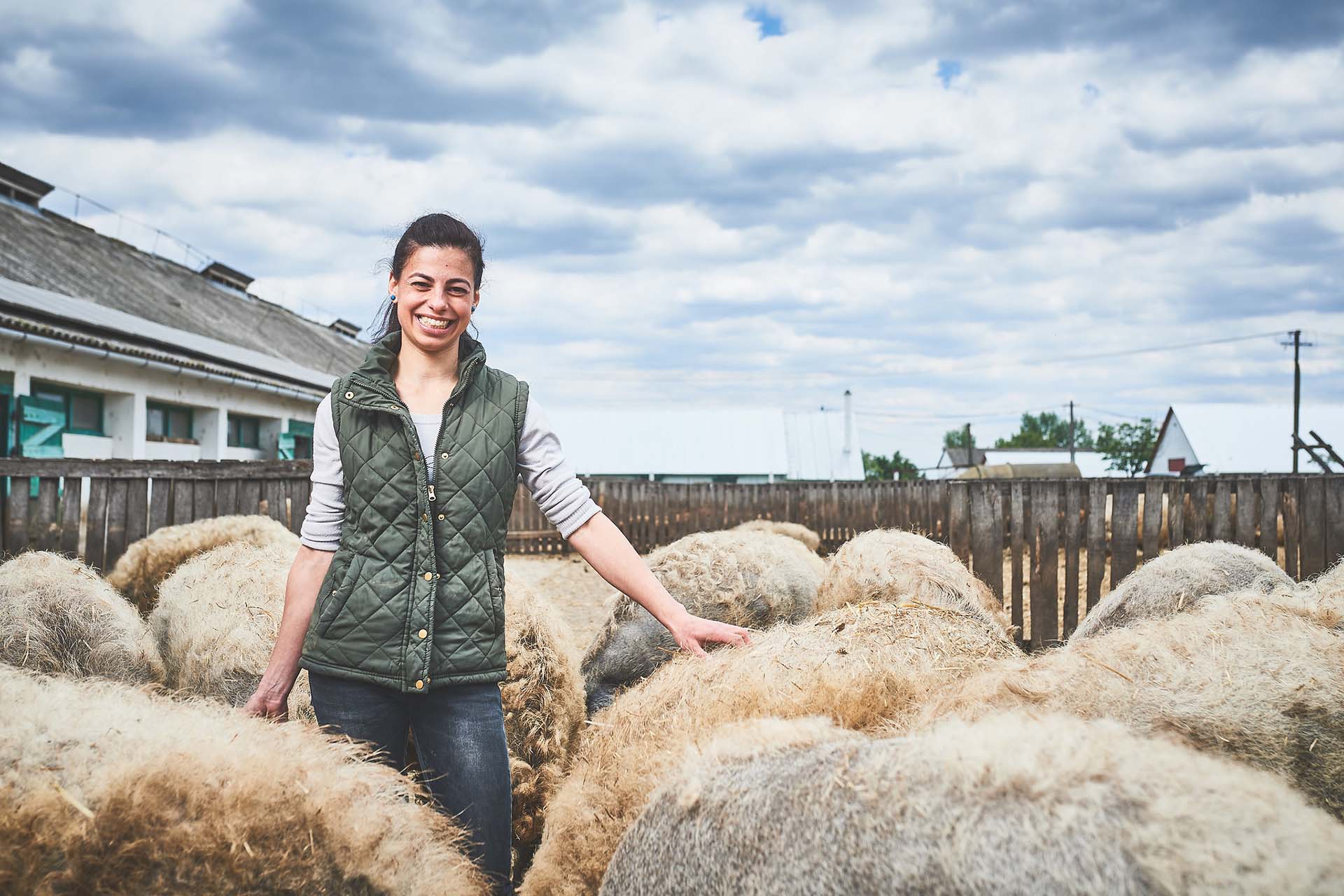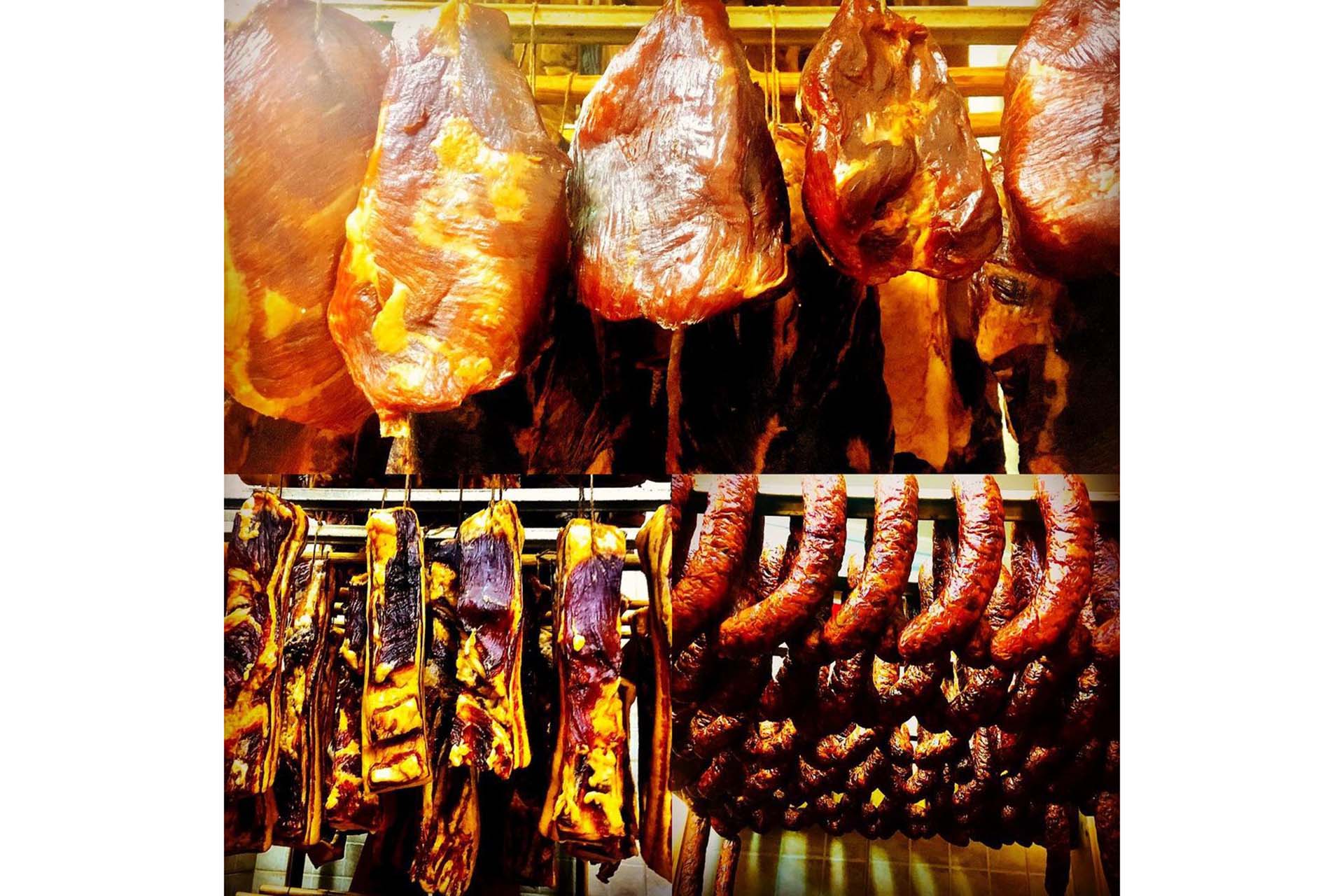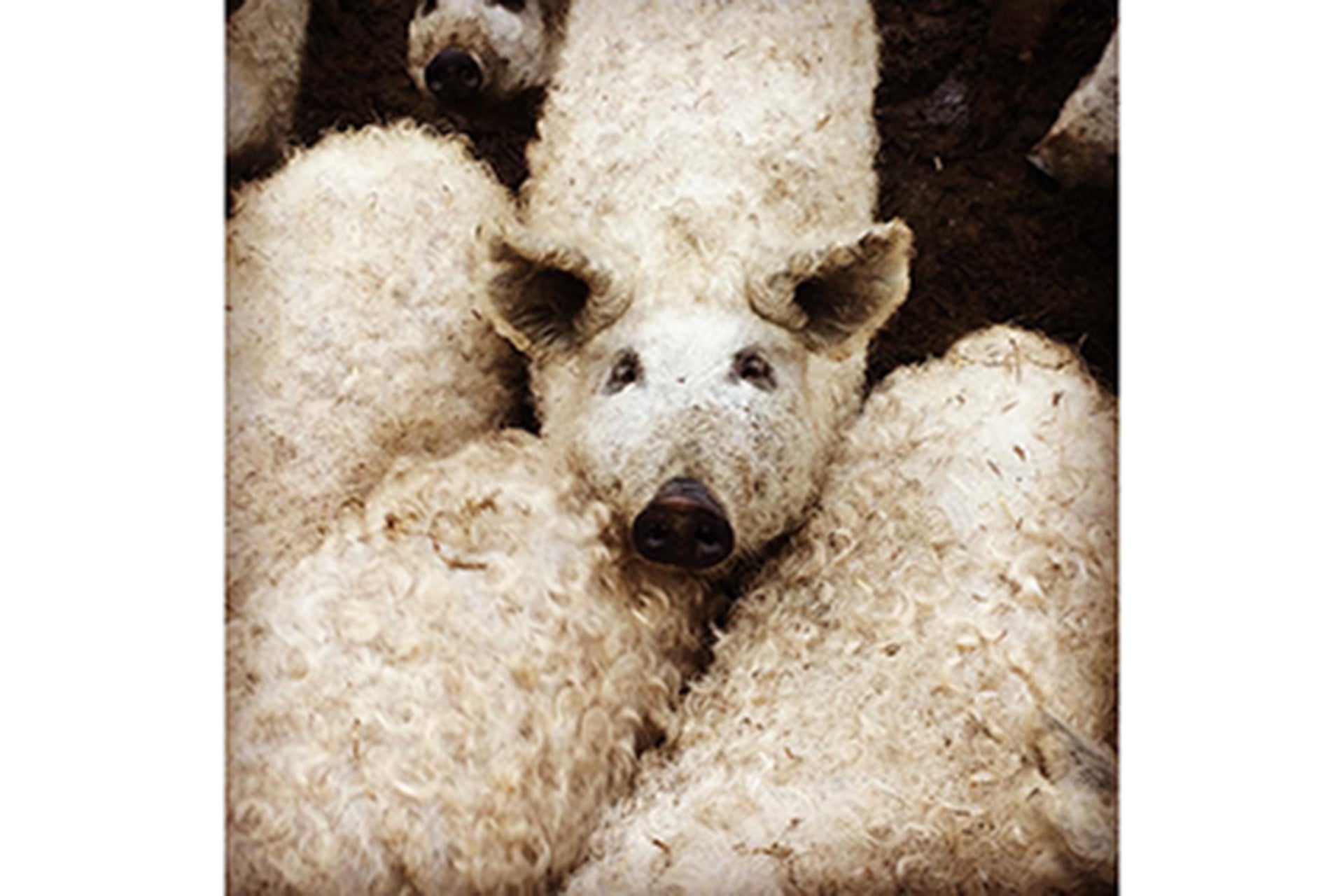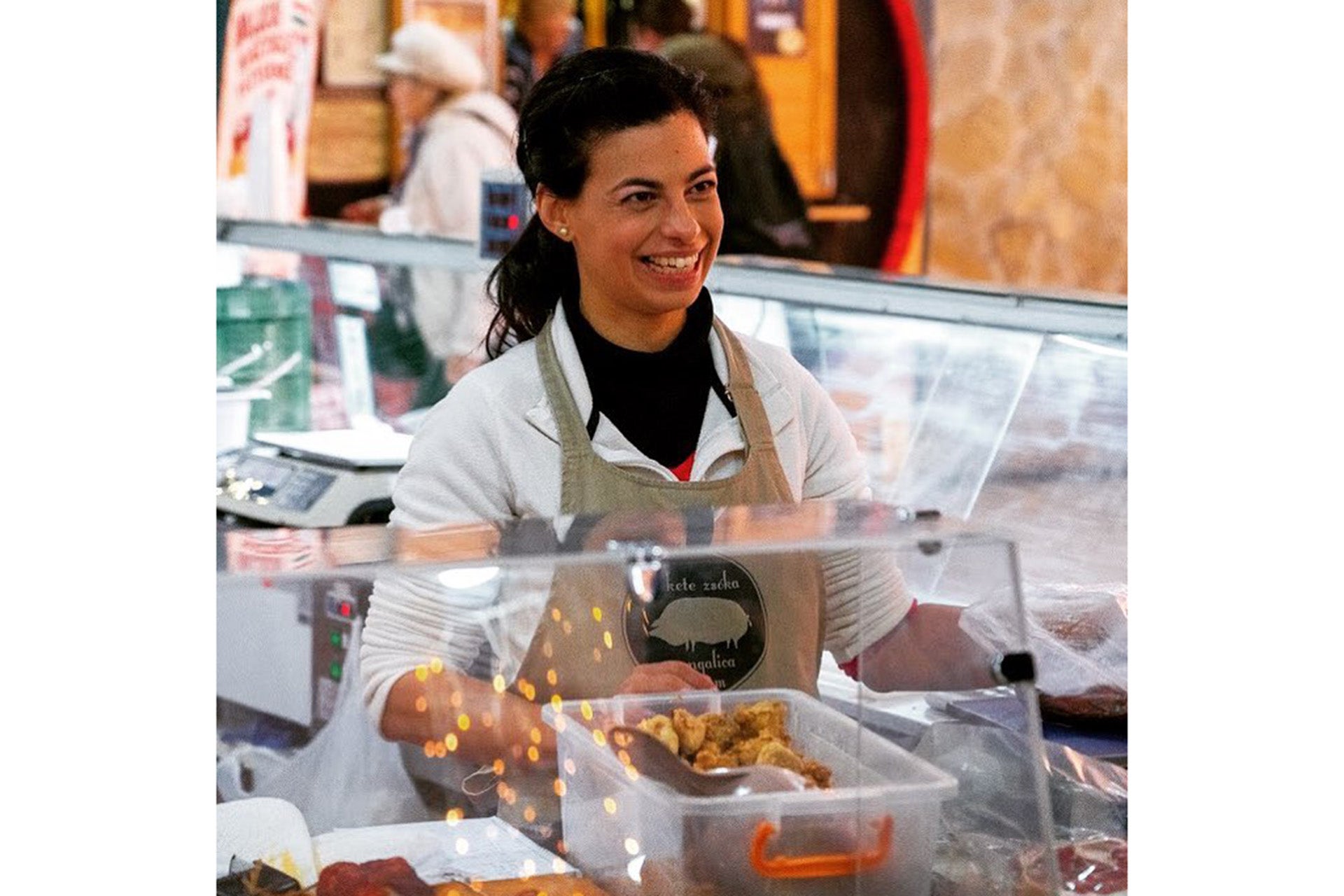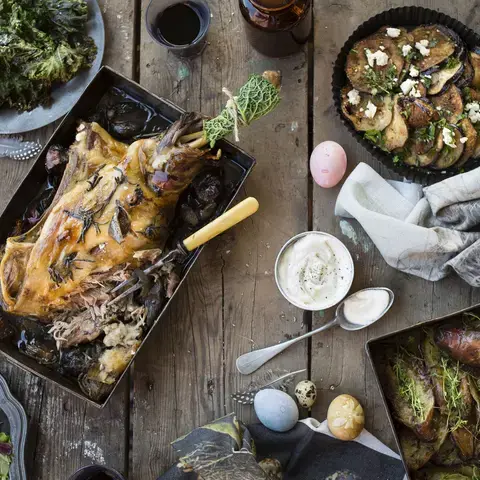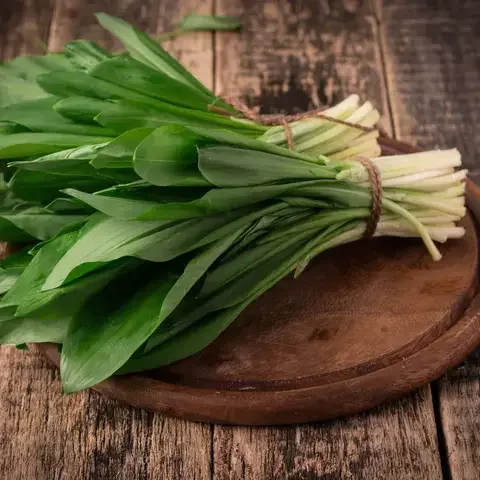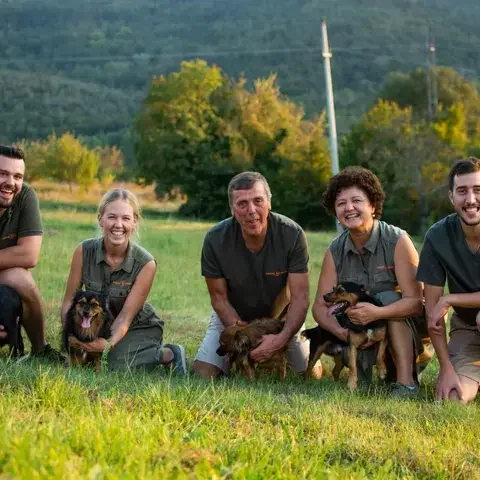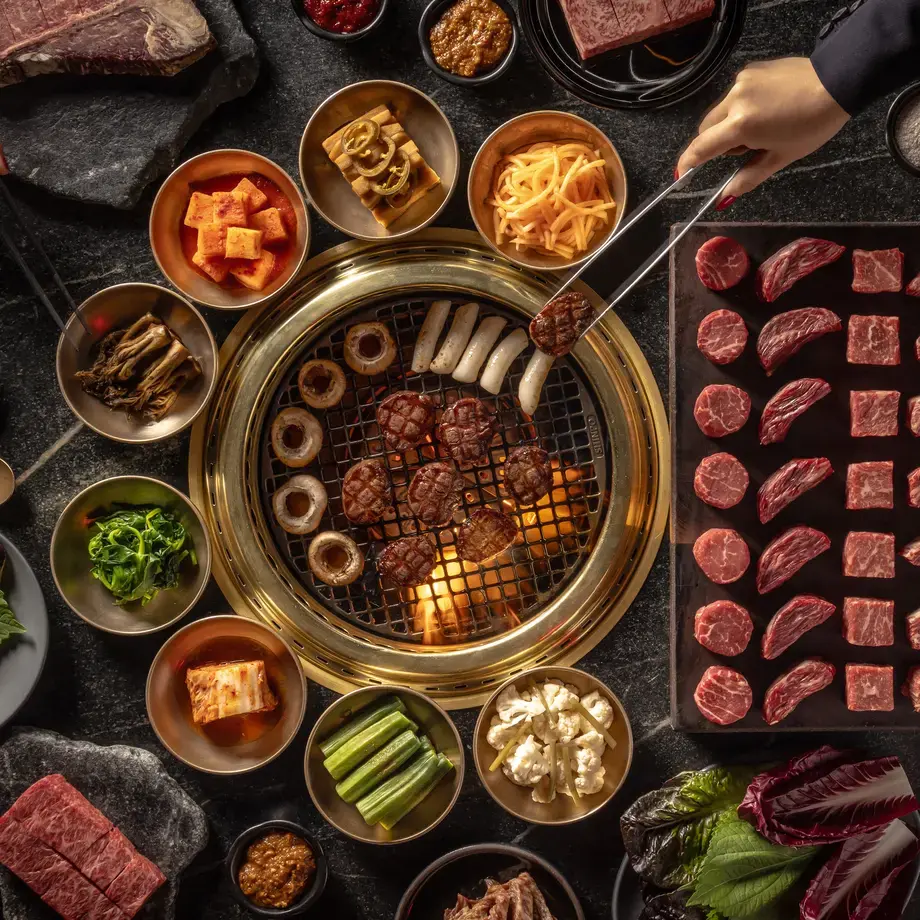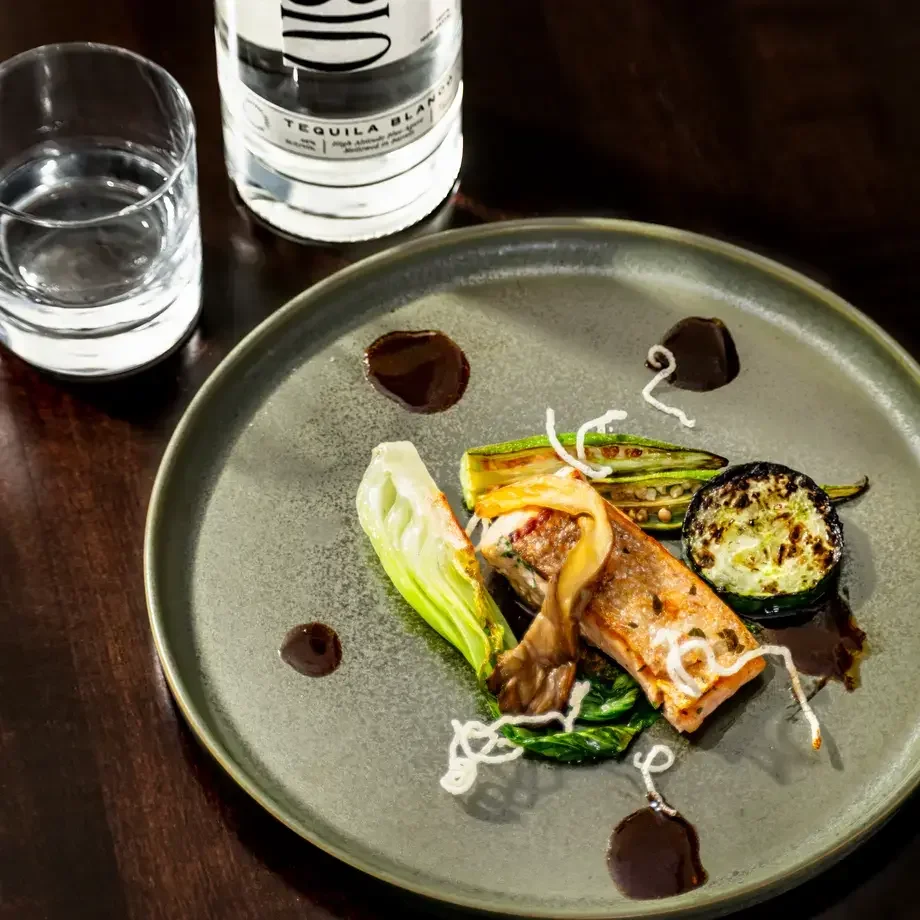The Producers is a new series highlighting the incredible work done by those responsible for the food and drink that ends up on our tables, whether it's at home or in the world's finest restaurants. While chefs get most of the accolades, it is often the producers who remain unsung heroes of our food system. Here we shine a spotlight upon them and their produce.
Hajdúböszörmény, Hungary. In a small northeastern town, just over two hours from Budapest, Zsóka Fekete runs a mangalitsa pig farm. Known both locally and abroad for her dedication to this traditional and distinctive Hungarian breed of swine, and her award-winning artisanal produce, the 36-year-old's reputation precedes her. “Whoever knows of me, knows I’m a kind of crazy fanatic for mangalitsa.”


